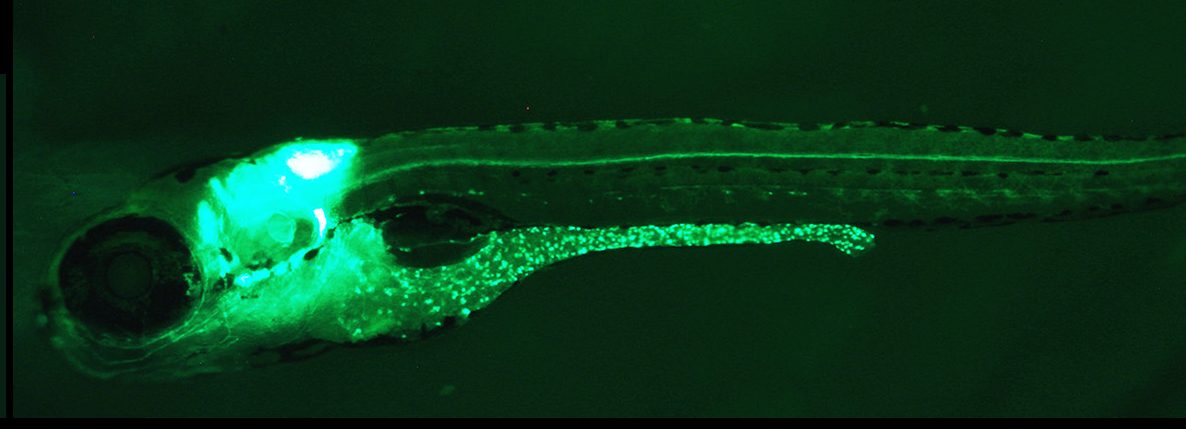A gut feeling: How understanding the nerves in your gut could also provide insights into the brain
Author: Amy Juhnke
Author: Amy Juhnke
Have you ever had that feeling of butterflies in your stomach? It’s just your nerves, literally. Your gut contains a large, but often forgotten, system of nerves. Collectively called the enteric nervous system, this system in the gut contains up to five times as many neurons as the number of neurons in the spinal cord.
Julie Kuhlman, assistant professor in the Department of Genetics, Development and Cell Biology, studies the enteric nervous system.
“It’s a huge subdivision of our nervous system that in the past has not received a lot of research attention,” Kuhlman said. “But that is now beginning to change and we are finding that the enteric nervous system plays an important role in exchanging information between our brain, our intestine (including the bacteria that live in our intestines) and our immune system.”
In many ways the nerves in the digestive system act like a mini brain. The primary role of the gut neurons is to move food through the digestive tract using similar signals as neurons in the brain. The gut neurons also serve roles such as sensing fullness, reacting to signals from immune cells and responding to the release of stress hormones, which cause the feeling of butterflies.
Kuhlman studies how the neurons in the enteric nervous system develop using zebrafish, which are transparent when young. This allows easy observation of their digestive system as it works. She identifies the individual genes that determine how to build a neuron, or how to regulate the way a neuron functions, through a process called transcriptomics. After she learns what genes are present, she then observes what happens when particular genes are lost, or when the genes aren’t working properly.
“If you have a cake and you have all these ingredients, you have to figure out, ‘If I add more of this or less of that, what’s going to happen to my cake?’” Kuhlman said. “And for us, it’s not a cake, it’s a nervous system – how do we build that nervous system from many different ingredients?”
Her work to understand how nerves form and the genetics involved contributes to an understanding of how to treat problems arising in the system. For example, Hirschsprung’s disease, a genetic disorder, may cause parts of the enteric nervous system not to form, resulting in an inability to move food through this part of the digestive system. Treatment for this disorder may one day involve repopulating the neurons with gut nerve stem cells, but first researchers need to understand how these nerves develop and what genetic changes led to impaired development.

Studying the neurons in the gut can also be an easier avenue to study diseases that affect the brain. Many diseases that affect neurons in the brain and spinal cord also affect neurons in the gut. Researchers have found that Parkinson’s symptoms are detectable in the intestine before they are recognizable in the brain. This is especially encouraging when considering that it is easier to biopsy the intestine than the brain and earlier diagnoses can lead to earlier treatments.
The study of the enteric nervous system could also provide critical information for drug development. Many of the drugs that affect the brain similarly affect the nerves of the gut. Observing how drugs affect the nerves in the gut may be able to tell researchers how they affect the brain.
“People are trying to use what we learn from the neurons in the gut to see how can that help us understand what is happening in the brain,” Kuhlman said. “It’s a simpler system. It’s not as complicated, but many of the kinds of neurons that are in your intestine are also in the brain so we can learn a lot about both the brain in your head and the ‘brain’ in your gut.”